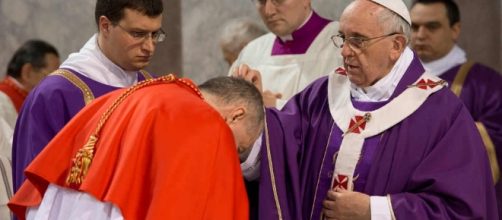Pope Francis held his Mass for Ash Wednesday this year in an ancient Roman basilica. The day’s rituals reflect a Catholic perspective on human mortality during the Lenten season. The Pope's homily also specifically focused on charity for the sake of charity.
What was the service like?
The Pontiff appeared dressed in purple vestments and held a pastoral staff during the proceedings, which took place within an ancient Roman basilica, St. Sabina's Basilica, a fifth-century church.
During his homily made during the ceremony, the Pope offered his own perspective on the Lenten season, saying that this is the time for people to say "no." He specifically condemned indifference, "harsh and hasty criticism," and failing to realize the complexity of the problems of the underprivileged.
He also criticized what he deemed "prayer that soothes our conscience," as well as giving to charity in a way that gives too much self-satisfaction.
In addition, the Pope also performed the traditional service of smearing ashes on attendants’ foreheads, which in the Catholic religion serves as a reminder of human mortality.
What is traditionally done during Lent for Catholics?
In the Roman Catholic Church, Ash Wednesday marks the start of Lent, the period of mourning preceding Good Friday, which honors the death of Christ, and ends upon Easter Sunday, which honors the resurrection. As the holidays need to fall on certain days of the week, there is no set date for each of them during the year, and Ash Wednesday falls on the first of March this year.
Lent is traditionally celebrated by Catholics by giving up an indulgence during the days of Lent, which do not include Sundays. In addition, Catholics also observe the season by fasting and abstaining from meat on holy days, which includes Ash Wednesday. Those unfamiliar with Catholic traditions often confuse the concepts together, mistaking the practice of abstaining from meat on Fridays, which is traditionally a year-round discipline, as being the Catholic form of fasting, which is normally reserved for Lent and other holy days.

